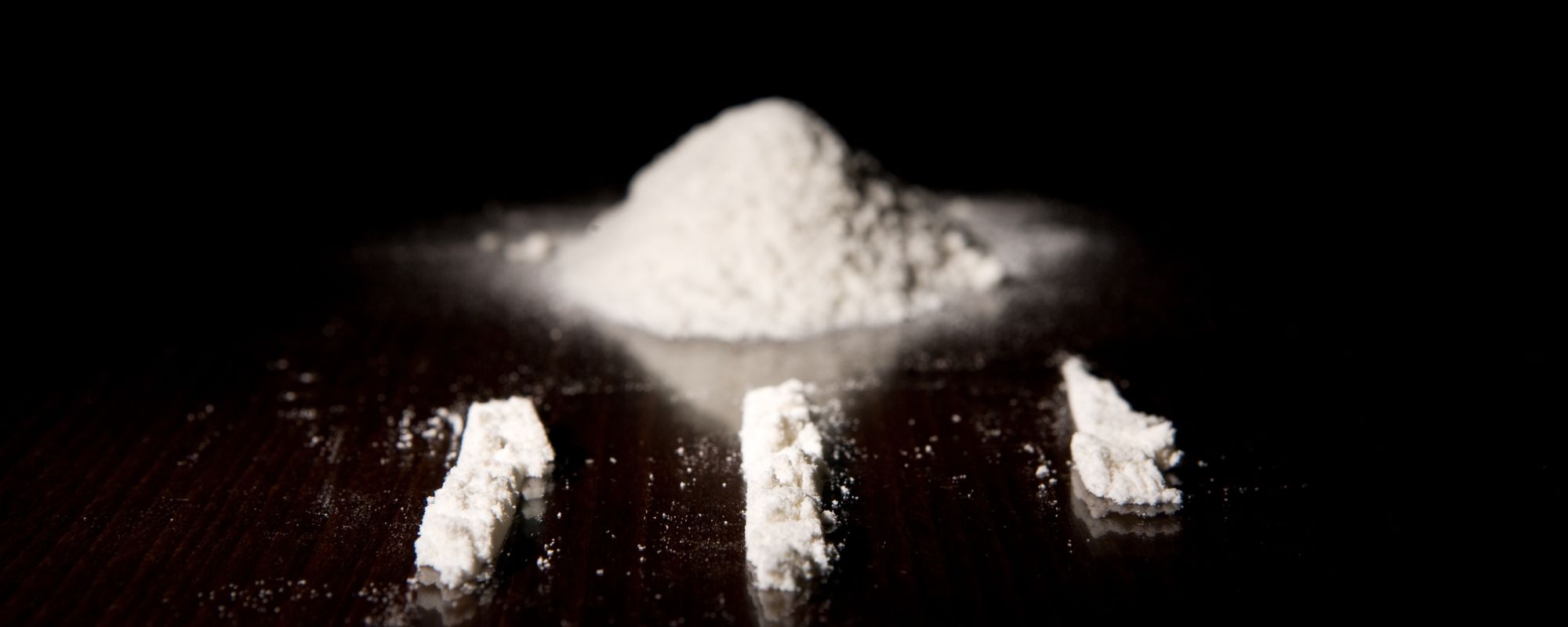If you’ve ever struggled with your mental health, you have likely considered meeting with a therapist. However, if you’ve done the research, you will have learned there are many types of therapists who specialize in different areas. It can be confusing to grasp what exactly therapists do for mental health. For example, can therapists diagnose mental health disorders, substance disorders, and behavioral disorders? Can they prescribe medication as an aid? And what do they do to help people manage their mental health issues? Let’s discuss what services therapists provide and how they can shape your healing.
What Is a Therapist?
A therapist is a trained and licensed professional who assists with your mental wellness. Regardless of whether you have a mental disorder or merely struggle with your mental health, sometimes, they can help. In the most severe cases, individuals need therapeutic intervention to improve their quality of life. Sometimes, therapy is even a necessary protection from a person’s self-harm or suicidal tendencies. However, in many cases, therapy is utilized to help people be healthier in their thoughts, feelings, and behaviors. Therapy can help any and all people! There are different kinds of therapy, including individual sessions and group sessions, like family therapy and couple’s therapy.
Overall, therapists are empathetic individuals who are trained to listen and help you develop healthier habits. As more people realize the value of therapy for personal and relational growth, we’re removing stigma from the idea of needing help.
Different Kinds of Therapists
Although the term “therapist” is used to refer to mental health professionals, there are actually different kinds of therapy providers. While all individuals undergo extensive training, their focus and approach differ. The distinctions between their specific training can be confusing, so let’s unpack it here.
Licensed Professional Counselor (LPC)
Licensed professional counselors, or LPCs, are professionals who are capable of treating general mental health and mental disorders. They’re trained to provide a variety of therapy sessions, including individual therapy, family therapy, couple’s therapy, and other group sessions. Notably, their specific training includes a master’s degree, a state licensing exam, and a certain number of hours of supervised counseling experience. Generally, it’s easy to find a licensed professional counselor near you who can help with a wide range of concerns.
Psychologists
A psychologist is someone who works within the professional field of psychology. As such, they’ve earned a doctoral degree in psychology, completed an internship, and passed the licensing requirements for their state. Usually, this includes both a national-level and state-level exam before receiving certification. What do psychologists do? They study mental processing and how it connects to behaviors, thoughts, and feelings. Within psychology, they can take different focuses of study. For example, they may specialize in clinical psychology, forensic psychology, or psychology in rehab. Because of their extensive training, psychologists tend to work with individuals who have mental health disorders.
Psychiatrists
A psychiatrist is a medical doctor who specializes in the field of mental health. As such, they treat those with mental health concerns and diagnose mental illnesses. Psychiatrists are actively involved in the process of psychotherapy treatment, as they often assess and work with patients. To become a psychiatrist, each professional completes a bachelor’s degree, four years of medical schooling, and four years of psychiatric residency. Finally, psychiatrists in the United States must pass the American Board of Psychiatry and Neurology exam. In some cases, psychiatrists work alone as private mental health doctors. Other times, they collaborate with a larger team, such as the staff at a professional rehabilitation center.
Marriage and Family Therapists (LMFT)
Licensed marriage and family therapists, or LMFTs, are professionals in the therapeutic field who specialize in relationships and family systems. Their training includes a master’s degree in marriage and family therapy and hours of clinical experience (depending on the state). Afterwards, they must pass a state licensure exam to be able to practice in the U.S. Notably, the LMFT approach addresses how family and other important relationships influence one’s wellness. LMFTs conduct both one-on-one sessions and meetings between groups. Although the focus is specific, they use the same traditional psychotherapy methods.
Licensed Clinical Social Worker (LCSW)
A licensed clinical social worker, or LCSW, is a social worker who operates within the mental health and therapy space. They provide clinical counseling services to help individuals improve their mental health and overall wellness. Similar to other therapy professions, LCSWs utilize traditional psychotherapy, but they also provide case management. To elaborate, case managing is the process of helping individuals concretely achieve their needs and goals. Beyond talk therapy, social workers are able to direct their patients and assist them in the process. For example, LCSW’s can help people find jobs, housing, caretaking, and disability services. LCSWs complete a master’s in social work, supervised clinical work, and a state licensing exam.
Can Therapists Diagnose Mental Health Disorders?
Undeniably, all types of therapists are highly trained and extensively knowledgeable about mental health. However, can all therapists provide an official diagnosis of a mental disorder? Just as the roles are different, some types of therapists are able to provide diagnoses. In sum, licensed clinical social workers, licensed marriage and family therapists, psychiatrists, and psychologists are trained to provide mental health diagnoses. Thus, they can assess, diagnose, and treat mental health disorders.
Similarly, licensed professional counselors can also diagnose mental illnesses. However, their exact ability to provide an official diagnosis varies according to state regulations. If, for whatever reason, your LPC cannot diagnose you in your state, they’ll refer you to another therapist who can. If you have a mental health challenge, you should arrange to meet with a professional in the therapy field to better understand your diagnosis.
What Determines If a Therapist Can Make a Diagnosis
As mentioned, some rules and regulations around legal, mental diagnoses vary based on the state. For example, one element of the state-by-state statutes is transitioning therapists are not able to make professional diagnoses. For instance, associates, students, and interns are not qualified to diagnose. However, if a licensed professional counselor (LPC) has a certification in their state, they can diagnose. Currently, LPCs can diagnose mental disorders in the majority of the 50 states. Yet, it’s important to be aware of certain limitations around diagnoses in the U.S.
Reach Out for Help With Addiction
Are you struggling with addiction?
Royal Life Centers at Chapter 5 is here to help you recover. Because we care.
What Mental Health Disorders Can Therapy Help With?
Therapy and counseling services are invaluable for a wide number of mental health struggles! Even people who struggle with symptoms of mental illness without a diagnosed mental disorder benefit from the self-growth elements of therapy. For example, behavioral therapy teaches people to develop healthier habits around their thoughts, emotions, and actions. By using Socratic questioning, patients are invited to reflect on their beliefs and why they have them. However, for those with mental health disorders, therapy is a crucial piece of their healing.
Anxiety
Anxiety is a mental disorder that falls under anxiety disorders. Additionally, it can be a symptom of other mental issues. You can receive a diagnosis for a variety of anxiety disorders. These include generalized anxiety disorder, social anxiety, acute stress disorder, and specific phobias. Treatment for anxiety includes behavioral therapy like exposure therapy and anti-anxiety medications.
Depression
Depressive disorders are debilitating mental illnesses that have symptoms of sadness, hopelessness, and dread. People with depression find it challenging to feel a sense of hope or positivity about what is to come. Along with major depressive disorder, you can be diagnosed with persistent depressive disorder, atypical depression, postpartum depression, and other categories. Antidepressants can make a significant improvement when combined with psychotherapy.
Trauma and PTSD
Trauma-related disorders include post-traumatic stress disorder (PTSD), acute stress disorder, and reactive attachment disorder, among others. Trauma disorders can stem from traumatic experiences or adverse childhood experiences. Notably, not everyone who undergoes trauma develops a trauma-related disorder, but all trauma should be treated. Although one might not realize it, unresolved trauma leads to overall unwellness. We treat trauma disorders, as well as the trauma of addiction and mental illness, at Chapter 5.
Personality Disorders
Personality disorders are behavioral disorders that affect one’s identity, reactions, moods, and behaviors. One of the most challenging elements is not having a strong basis of self-identity in which to stay rooted. Further, individuals often struggle to make or keep meaningful relationships because their personality seems to shift often. Fortunately, personality disorders can be treated and improved through holistic rehab that combines traditional and alternative therapies.
Can Therapists Prescribe Medication?
Prescription medication for mental health disorders is often an important step that makes a big difference in one’s healing. When combined with therapy and counseling, medication helps a person manage their symptoms. Instead of being trapped by debilitating signs of their illness, they can experience a higher quality of life thanks to medicine. Therefore, can therapists write prescriptions? It depends on the type of therapist.
Psychiatrists are medical doctors in the field of mental health and are able to offer the full spectrum of care. From assessing your disorder to diagnosing you to prescribing medication, psychiatrists can walk you through each element of healing. On the other hand, psychologists, professional counselors, clinical social workers, and marriage and family therapists cannot prescribe medication in the United States. They all have extensive training in the areas of diagnosing and treating mental disorders through psychotherapy. However, only physicians, like doctors and psychiatrists, can legally prescribe medicine.
How Do Therapists Diagnose Mental Health Disorders?
The process of getting a professional diagnosis of a mental disorder is straightforward. You will need to meet with a therapist, regardless of their specific area of focus. Through intentional conversation and discussion, they will assess your mental health and daily struggles. In order to receive a full and accurate assessment, you may need to meet with your therapist for multiple sessions. However, they will follow the Diagnostic and Statistical Manual of Mental Disorders (DSM-5) when making their assessment.
When you receive a diagnosis through Royal Life Centers, here is how the process looks.
Initial Assessment
During the intake stage, you will meet with one of our therapists at Chapter 5 to create a personalized plan for your treatment. If you already have a diagnosed disorder, they will take it into account when discussing your rehab goals. On the other hand, they can complete an initial assessment to begin the process of providing a diagnosis. It’s possible to be diagnosed with more than one disorder, whether mood disorders, behavioral disorders, or substance use disorders (SUD). In sum, having a dual diagnosis simply means you’re dealing with connected and overlapping issues. Because they are closely tied together, they are likely to exacerbate each other to lower your health. As such, we treat co-occurring disorders as joint issues that should be treated in one coordinated treatment plan.
Diagnostic and Statistical Manual of Mental Disorders, 5th Edition
As mentioned, the Diagnostic and Statistical Manual of Mental Disorders, 5th Edition, or DSM-5, is the standard classification for mental illnesses. Professional therapists and counselors utilize this resource for the most updated information about mental disorders. The DSM-5 outlines specific signs and symptoms for all mental health disorders and what constitutes a diagnosis. Thus, therapists consult it when making their assessment, as it can be tricky to narrow down some diagnoses.
Individualized Treatment Plan for Mental Health
After your initial assessment and professional diagnosis, you are set to begin treatment at Chapter 5 Recovery. Our programming is holistic-focused, meaning we incorporate mind, body, and spirit healing for total restoration. Additionally, we focus on our guests as people first, not whatever illness they struggle with. Part of our person-centric approach is providing flexibility in treatment. Each guest to Chapter 5 receives a personalized service plan for rehab. Rest assured, your plan can be modified as you progress through recovery if you need more time in a level.
Psychiatric Medication Management
Because prescription medication makes a difference in the healing of mental health disorders, we offer a medication-assisted treatment (MAT) program. This specific program treatment track can be added onto general rehabs, like addiction rehab and mental health rehab.
Find Professional Treatment for Mental Health Disorders
Finding a professional rehab center to help you heal from your mental health disorder doesn’t have to be a challenge. You came here wondering how a therapist can help you, like can therapists diagnose mental illnesses? Yes, therapists can assess, diagnose, and treat mental health disorders and general mental health struggles. At Royal Life Centers at Chapter 5 Recovery, our therapists help our guests heal every single day. We can help you overcome your mental disorder at our professional mental health rehab. Please contact us today to save a spot.
- Medication-Assisted Treatment: Naltrexone to treat Methamphetamine Addiction? - January 5, 2026
- What Is Drug Detox and How Does It Help? - December 8, 2025
- How Long Does Cocaine Stay in Your System? - August 27, 2025






